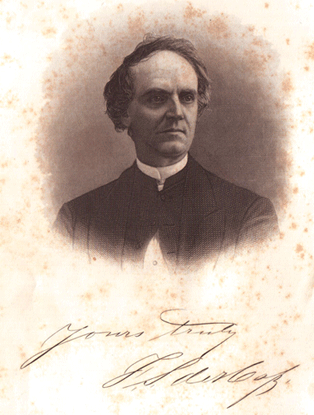
“The author’s object in accepting an appointment under the United States Government was not the honor or emoluments of office, but a desire to visit the lands of the Bible, that he might see for himself how far the manners, customs, and traditions of the people and topography of those countries agreed with the inspired word.â€
So begins one of the numerous 19th century Bible customs travel accounts by Christian enthusiasts able to travel to their “Holy Land.†The author is Frank S. DeHass, who served as the United States Consul in Palestine in the mid 19th century. His text is aptly entitled Buried Cities Recovered, or, Explorations in Bible Lands, giving the results of recent researches in the Orient, and recovery of many places in sacred and profane history long considered lost. My copy, handed down from my grandmother, was published in 1886 in Philadelphia by Bradley & Company; the tenth edition no less! This is a wonderful read and you can read the entire book online, thanks to Google Books.
Like so many other Bibliophiles of his generation, DeHass extols the virtue of actually visiting the land where Jesus was born and died. In his own words:
Recent explorations in the East have resulted in the recovery of many places in sacred and profane history long regarded as lost; and as the facts brought out by these researches are not accessible to the general reader, the author has compiled them in this concise form, and at the request of numerous friends gives them to the public, not as a scientific work for the antiquarian, but as a humble contribution to Biblical archaeology for the home circle, believing that such a volume will add greatly to the elucidation of the Scriptures, and serve to correct some of the errors which many travellers have fallen into by a too hasty or superficial view of the places visited.
Palestine, the great centre of religious interest, though comparatively a small mountainous country, has, nevertheless, been the theatre of the most stirring and momentous events in the history of our world. Learned divines, historians, and antiquarians for ages have been visiting this land, giving us glowing descriptions of their travels, with the results of their investigations, until our libraries teem with volumes on these subjects; and yet the desire to know more about this country was never greater than at present. No other land is so fruitful a theme for meditation or so hallowed in its associations; and what is remarkable, it never loses its interest. It can no more be exhausted than Deity himself. The more we know about Palestine the more interest it awakens. The whole country seems to breathe an inspiration, and to the devout mind is fragrant with the most sacred memories.
The Palestine for Consul DeHass was a biblicized fantasy, the physical ruin for Christian apologists to dig out a more rational vindication of their faith. At the time that he wrote, DeHass can be forgiven for thinking that the research of his day was indeed verifying his sacred text. Most of the archaeologists dabbling in the ruins, including Jerusalem, were finding aspects of history that clearly made some aspects of Biblical history more than Homeric myth. Of course, this is what most set out to find. The Palestine Exploration Fund, for example, was staffed intellectually by soldiers (some literally) for a conservative Christian view. Those with Holy Land dust on their boots scoffed at the literary critics who dared question the assumed divine inspiration of the Scriptures. For DeHass, as was true for so many other doctors of a certain kind of divinity, his popularizing was meant “to correct in some measure the perverse tendency of the age to doubt the credibility of the inspired volume” (p. 10).
Little could such a writer imagine that more than a century of serious archaeological, historical and literary research would change what to him was “perverse” into a “pervasive” intellectual view. The value of a text like his is certainly not in the accuracy of the content, but in the exuberance of his rhetoric. The hyperbole is so catchy that one can easily gloss over what in literal terms would seem outright heresy. To say that the land of Palestine, fascinating as it could be, “can no more be exhausted than Deity himself” would seem a rather sharp letdown for the object of Christian worship. In a way, clinging to the hope that the ruins in Palestine would vindicate a certain interpretation of the Bible was a poor choice. In this case the accumulated bathwater through the present would prompt those who need such verification to lose sight of the baby that started the whole faith, a babe in a manger, which is what tomorrow’s post will be all about, at least in the eyes of DeHass and his pilgrim party in Bethlehem.
to be continued …
Daniel Martin Varisco